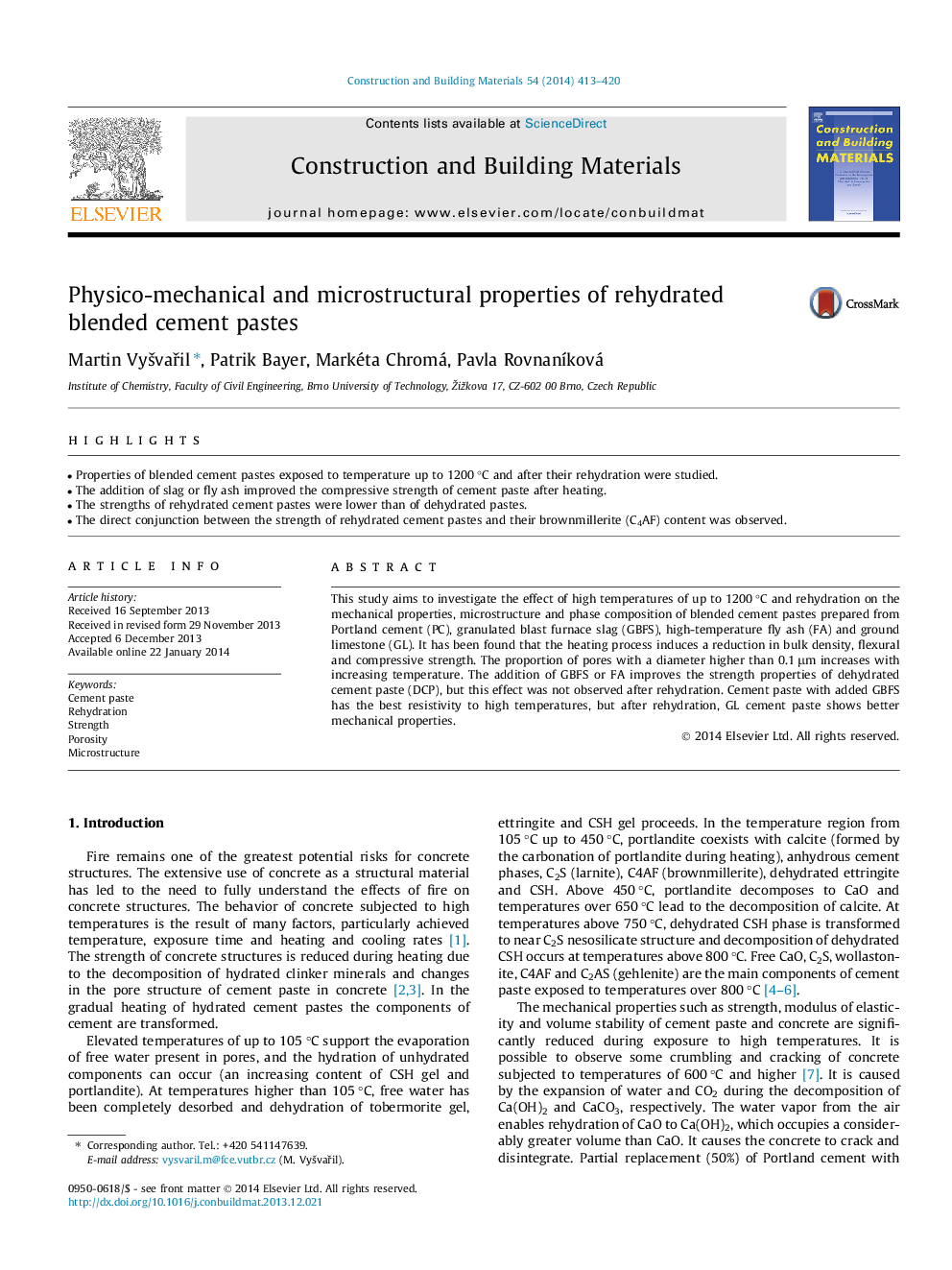| Article ID | Journal | Published Year | Pages | File Type |
|---|---|---|---|---|
| 6723859 | Construction and Building Materials | 2014 | 8 Pages |
Abstract
This study aims to investigate the effect of high temperatures of up to 1200 °C and rehydration on the mechanical properties, microstructure and phase composition of blended cement pastes prepared from Portland cement (PC), granulated blast furnace slag (GBFS), high-temperature fly ash (FA) and ground limestone (GL). It has been found that the heating process induces a reduction in bulk density, flexural and compressive strength. The proportion of pores with a diameter higher than 0.1 μm increases with increasing temperature. The addition of GBFS or FA improves the strength properties of dehydrated cement paste (DCP), but this effect was not observed after rehydration. Cement paste with added GBFS has the best resistivity to high temperatures, but after rehydration, GL cement paste shows better mechanical properties.
Related Topics
Physical Sciences and Engineering
Engineering
Civil and Structural Engineering
Authors
Martin VyÅ¡vaÅil, Patrik Bayer, Markéta Chromá, Pavla RovnanÃková,
